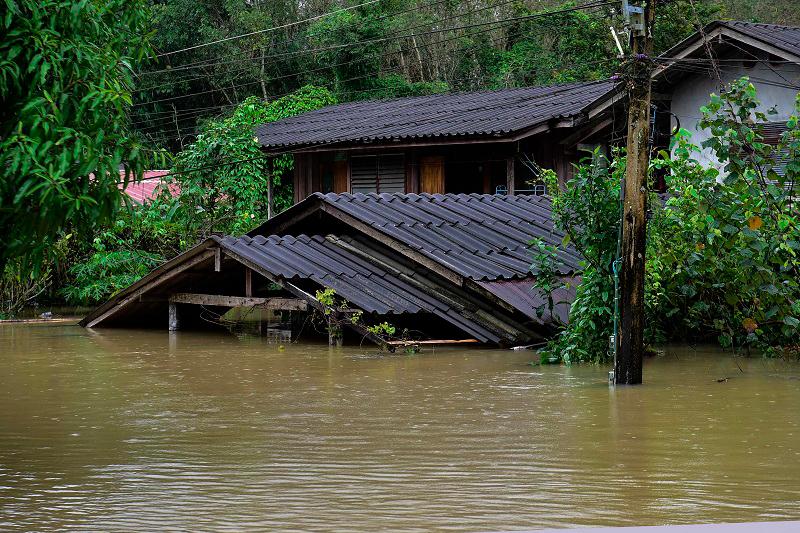BANGKOK: More than 30,000 people have been forced to flee their homes due to severe flooding in southern Thailand, where the death toll climbed to 29, officials said Wednesday.
More heavy rain is forecast in the area, where over 155,000 households have already been affected by flooding, according to the Thai government’s public relations department.
Five southern provinces have been hit -- Pattani, Narathiwat, Songkhla, Nakhon Si Thammarat and Phatthalung -- forcing more than 33,000 people to leave their homes, the spokesperson for Thailand’s ministry of public health said in a statement.
Disaster response teams were working to drain floodwater and evacuate flood victims to dry areas, the country’s disaster agency said on its Facebook page Wednesday morning.
The death toll now stands at 29, up from 25 reported on Tuesday.
The Thai Meteorological Department warned that a weather system moving from the South China Sea across Malaysia and the Andaman Sea was expected to bring heavy rain and further flooding to southern Thailand.
The Department of Mineral Resources also warned of potential landslides and flash floods until December 5.
The government has deployed rescue teams to assist affected residents and designated 50 million baht ($1.5 million) in flood relief for each province.
On Tuesday, the Thai cabinet approved a 9,000 baht ($260) payment per family to support those affected.
Malaysia floods
In neighbouring Malaysia, where the floods forced the evacuation of more than 150,000 people last week, residents have been returning to their homes and businesses as the waters receded.
Malaysia’s National Disaster Management Agency (NADMA) said the number of evacuees has dropped to 64,684 as of Wednesday. It also revised the number of deaths down from five to two, without giving any reason.
But NADMA director-general Khairul Shahril Idrus said the agency remained vigilant and was preparing for the possibility of a second wave of flooding.
Residents have begun returning to their homes and finding appliances and other items caked in mud or damaged by debris that came with the floodwaters.
Food stall owner Nazri Nawi said the damage was worse than the inundation in 2014, which had been the most disastrous in the country.
“Something like this has never happened before,“ the 47-year-old told AFP in the town of Tumpat in northeastern Kelantan state, saying his stall was damaged and he feared having to start over from scratch.
“At the moment, I can’t do anything,“ he said. “I don’t even know how to start over if there is no help.”
While the region experiences annual monsoon rains, scientists say climate change is causing more intense weather patterns that can make destructive floods more likely.









